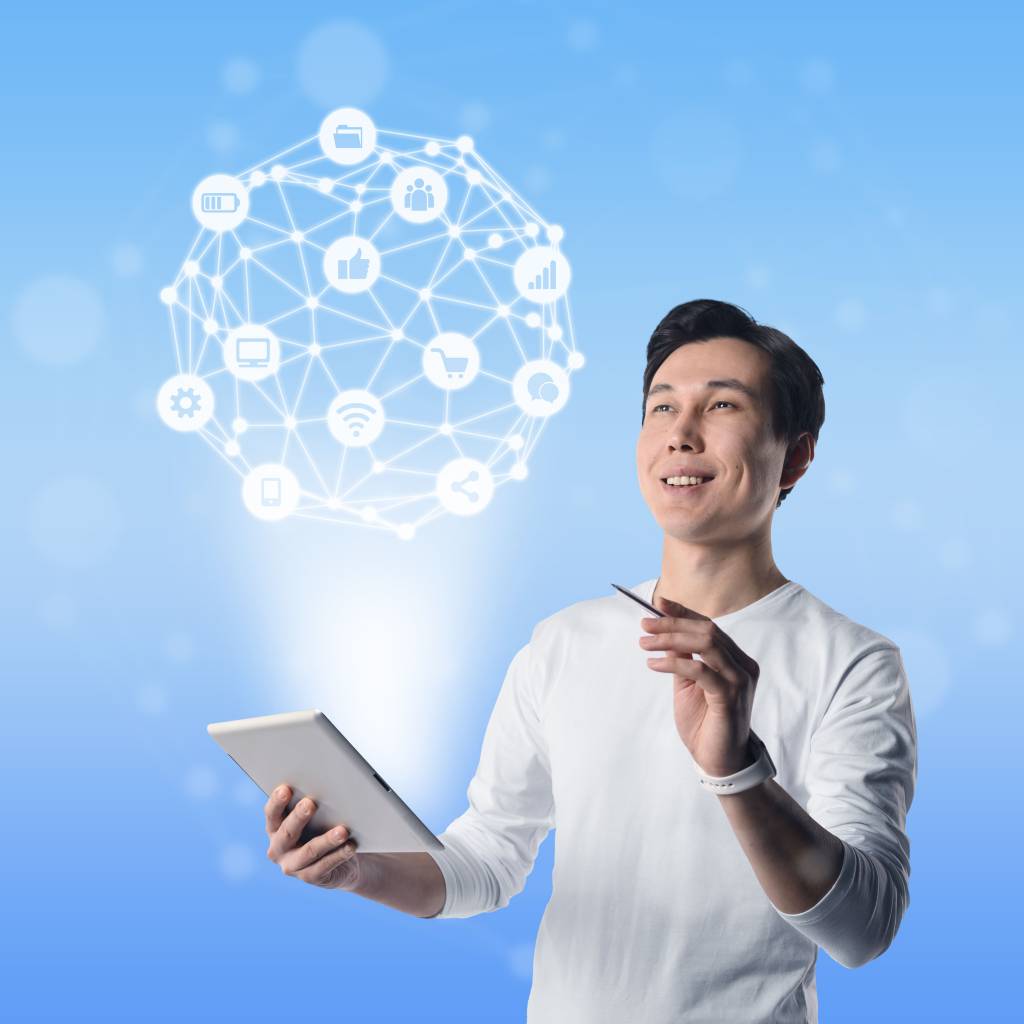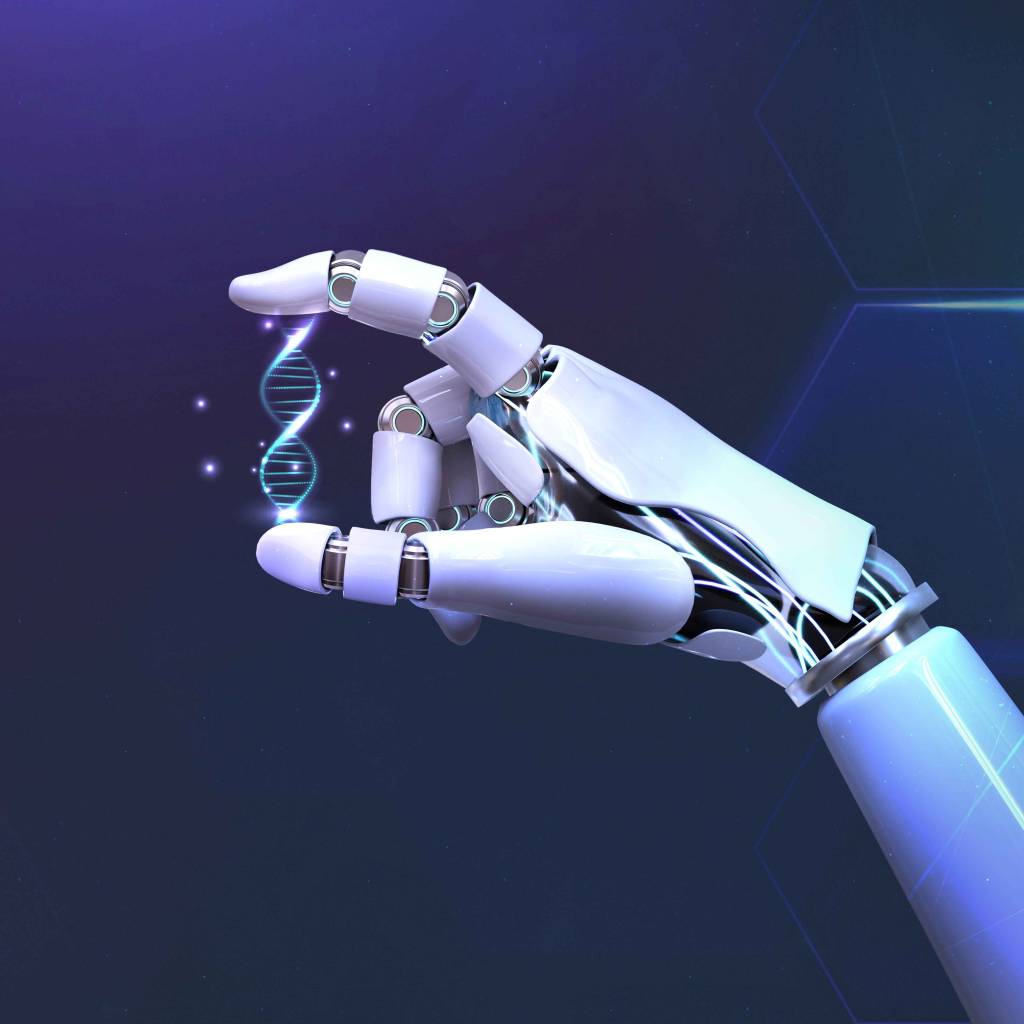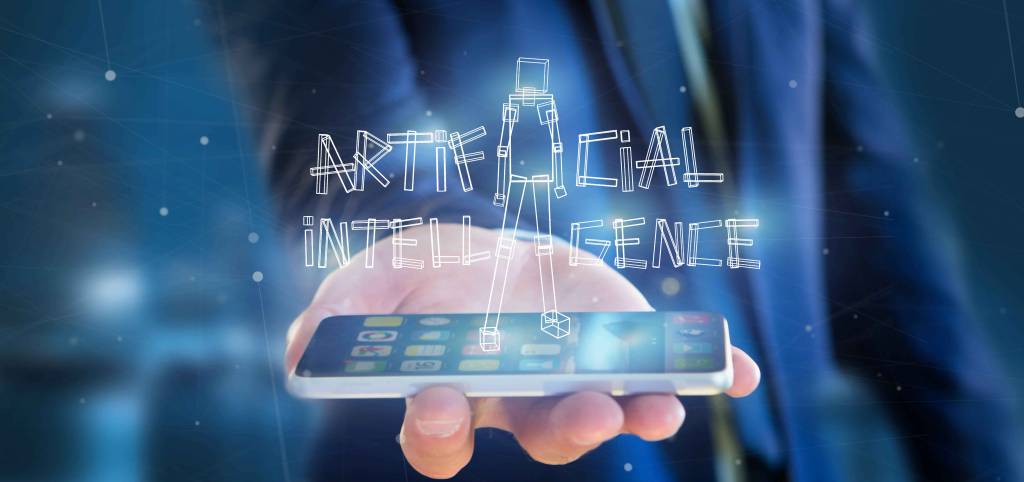Today Artificial Intelligence (AI) is transforming every sector of the business world. It is used on a large scale in various industries and in different manners. Organisations are leveraging AI, keeping in mind the high efficiency, better insight, increased productivity, and improved profitability, AI brings with itself in the work. AI is used to analyse voluminous data in industries and make data-driven decisions without any human error, human bias or human preference. On one hand, where AI takes care of all this, businessmen, on the other hand, are able to focus on more complicated and strategic tasks in business which can be resolved by a human mind only. AI, thus, has opened the way to new capabilities and business expansion these days. AI is also responsible for providing personalised customer services for example in the case of Netflix. In addition to this, with the help of AI, businessmen get better monitoring to identify problems and patterns in their businesses and fix them as soon as possible. Other than this, AI is helping people to be more creative and innovative by providing them with the required inspiration.
But what is AI?
The origin of AI can be traced back to 1950. The term ‘Artificial Intelligence’ was coined in a workshop at Dartmouth College in 1956, which was organised to discuss the possibility of creating machines that could mimic human intelligence. In the beginning, AI’s progress was slower because of the limited computing power and data available at the time. AI faced many periods of a lack of interest known as AI winters. Similarly, AI has faced periods with increased data and advanced computing power called the AI boom.
AI is actually the simulation of human intelligence processes by machines, especially computer systems. Such systems are able to perform cognitive functions which are generally associated with human minds such as perceiving, reasoning, learning, interacting with the environment and problem-solving etc. Examples of AI programs are self-driving cars, robots, artificially created images, chatGPT, and other AI chatbots.
Current trends of AI in business
- Enhanced customer experience: AI is responsible for transforming businesses and to enhance customer experience because it has changed the way companies interact with customers. Today, AI-powered chatbots and virtual assistants in companies provide personalised recommendations and 24/7 instant support to customers. This has transformed the customer experiences in businesses. How is it possible? It is possible via NLP (Natural language processing). Natural language processing, such as in openAI’s chatGPT, Google’s Bard, Microsoft’s AI-powered Bing and IBM’s Waston assistant, allows chatbots to understand customer queries in natural language and fix their problems instantly. AI can also respond to customer reviews, feedback and social media mentions by identifying areas of improvement for companies. Similarly, AI, on the basis of analysis of historical data predicts customer needs leading to customer loyalty.
- Personalisation and targeted marketing: AI has the capability to identify a particular customer segment. After identification, it tailors the content and offers personalised content, product recommendations and targeted advertisements to the targeted customers according to their individual preferences and behaviours. But how? By analysing the customer data! This results in an increase in user engagement and conversion rates. AI, thus, is responsible for customer retention, establishing stronger customer relationships and fostering brand loyalty in business. By the way, personalisation does not stop here, it extends to various marketing channels like email marketing, social media marketing and online advertising. But leveraging customer data also has raised issues of data privacy and other potential ethical issues. It has made balancing the personalisation of experiences and respecting user privacy very crucial for AI in transforming businesses and policymakers.
- Supply chain optimisation: AI optimizes supply chains with its AI-driven advanced algorithm. AI-driven advanced algorithm helps companies in analysing data in real time, forecasting the demand, improving inventory management and minimizing delivery time. This lets businesses reduce costs and increase overall efficiency in supply chain operations. Moreover, AI can be used to optimize the delivery route of transportation which ultimately reduces transportation costs and minimizes the delivery times. Similarly, AI can analyse the data of suppliers and their performance metrics to choose the best suppliers, allowing better partnerships and cost savings in the company.
- Robotic Process Automation (RPA): Robotic Process Automation (RPA) has become more efficient, intelligent and adaptable by integrating with Artificial Intelligence. It can understand and process human language enabling the automation of tasks where interactions with users or understanding text-based information are required. Also, AI, in businesses has taken over repetitive or rule-based tasks such as data entry, finance, and back office processes so that humans can focus on other more critical tasks. AI performs such tasks without any human error and with greater efficiency. This automation saves time and costs for businesses.
- Data analysis and insights: The capability of AI to process and analyse vast amounts of customer data helps companies with various tasks. Companies can predict trends, hidden patterns, and correlations in the data. They can identify new market opportunities and customer behaviour and make more informed decisions. This helps them to stay ahead of the competition in the market. AI, thus, lets companies forecast future trends and potential outcomes.
- AI in human resources: AI is used to streamline the hiring processes also. It can be used to automate candidate screening and analyse employee performance data. AI facilitates HR professionals to make better decisions related to hiring, retention, and employee development. AI, thus, plays an important role in talent management, employee engagement, employee performance analysis and identifying skill gaps. This at last results in increased employee satisfaction, enhanced workforce productivity and better hiring decisions, free of hiring biases.


Future prospects of AI in business
- Autonomous System and Robotics: It is believed that the fields of transportation and logistics are going to be transformed by the development of robotics, drones and self-driving vehicles. The warehouses and fulfilment centres will be fully automated through robotics for tasks like assembly, sorting and packing which will end the dependency of businesses on human intervention. The AI-powered sensors and computer vision technologies will improve the ability of robots to perceive their surroundings accurately. In short, there will be improved autonomy in Robots and autonomous systems with enhanced perception.
- AI-enhanced creativity: Today AI is helping a lot of artists by inspiring them in their respective arts. For example, AI-generated literature, paintings, designs, music and content are already captivating mankind. AI, on the basis of its analysis of voluminous data, produce new and innovative work of art. Thus, it is believed that AI, in future, will be a great source of innovation for artists when meet human creativity. Also, amid all this chaos we can not overlook the fact that AI has raised the debate on the nature of art, the ethical use of AI-generated content and its originality. However, AI-enhanced creativity will remain a driving force to reshape the future of artistic expression and human imagination.
- Predictive analysis and decision-making: With the passage of time, the AI algorithm is believed to transform businesses & evolve in future and with this evolution the capability of businesses to identify potential risks will also become a much easier task. With the help of AI, companies will be able to anticipate market trends, forecast market development, anticipate customer preferences and make proactive decisions efficiently. This will enable businessmen to prepare more informed strategic planning in businesses. The ability to predict such outcomes will give companies a competitive advantage also, in dynamic markets.
- AI in healthcare and life sciences: AI will revolutionise the healthcare and life science sector by analysing the vast medical data generated from the genetic makeup, medical history and lifestyle of patients. In this way, AI will be responsible for detecting diseases earlier. Techniques like drug discovery, AI-driven diagnostics and personalised medicines will be feasible in future. In AI-driven diagnostics the detection of diseases will be more accurate and efficient because the medical images such as X-rays, MRIs, and CT scans will be analysed by AI algorithms. In addition to this, AI-powered chatbots and virtual assistants can help patients with remote consultations and personalised medical information also.
- Ethical and responsible AI adoption: As AI will become more prevalent in business operations, ethical dilemmas will also arise simultaneously. Issues such as AI’s impact on privacy, human rights, job displacement, safety, transparency and biases concerns will come into play in future, hence, responsible AI adoption will become mandatory to avoid all ethical concerns. To withstand this, responsible AI adoption will enable companies to build trust with their customers, stakeholders and the public. Companies will have to ensure transparency in decision-making processes, fairness, accountability and the fact that AI models are trained on unbiased data.
- AI as a service (AIaas): AI as a service (AIaaS) refers to the delivery of artificial intelligence capabilities and functionalities as a cloud-based service. In the future, the increased use of AI will democratise the use of AI for small start-ups and small businesses and that too without any heavy upfront investments in infrastructure and expertise. This enables such small businesses to compete with larger corporations. AIaaS also allows faster deployment of resources by eliminating the need for complex AI development. It reduces time-to-market for AI-powered solutions and enables quicker adoption of AI capabilities.

AI is transforming businesses at present and will keep doing so in future also with better tools and techniques. Thus, it becomes important for companies to take advantage of AI and stay competitive in the market. However, with the increasing popularity and evolution of AI, it will become essential for companies to ensure the ethical and responsible use of AI in the market. The picture of AI in future is otherwise more innovative and exciting than it is at present. AI is used to make data-driven decisions, predict market trends, and enhance customer experience, today. By adapting to AI’s innovative features companies self-help themselves to stand out in a fast digital era. On the other hand, the future of AI also opens doors to a more innovative tomorrow where automated systems and robotics and AI-driven creativity are supposed to operate efficiently. In short, the future of AI is full of new opportunities and innovation.



